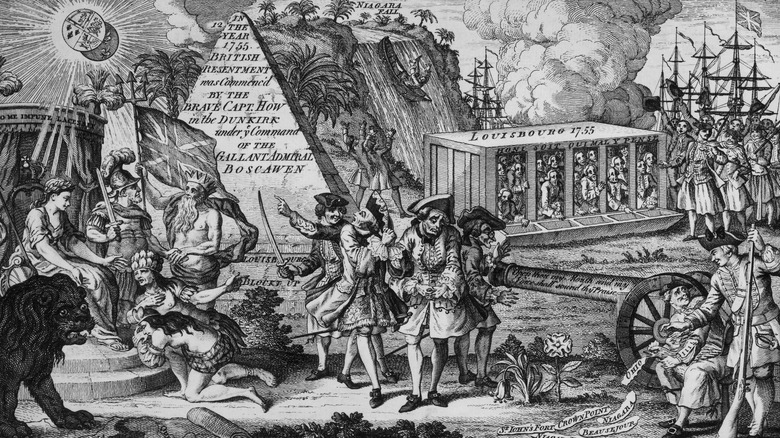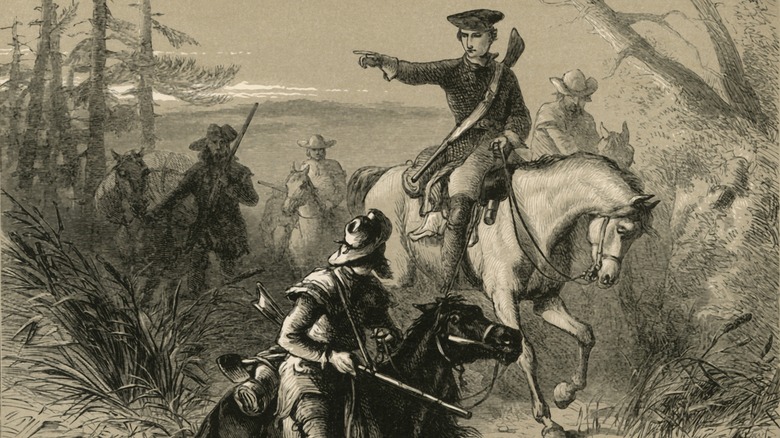Why The French And Indian War's Name Is Misleading
The French and Indian War started in 1754, and in North America, set the stage for the American Revolution in which the United States stopped being British colonies and became an independent nation. However, its name can be misleading, as it was not fought between the French and the Native Americans. In the rest of the world, it's referred to as the Seven Years' War, and per History, it was the first global war, with fighting occurring in Europe, the Caribbean, the Philippines, India, and Africa.
In North America, the war was between the British and French colonists, both fighting for domination of land that is now part of the United States. The struggle had been going on for years, but an official war began when the governor of Virginia sent 21-year-old Lieutenant Colonel and future first President of the United States George Washington to western Pennsylvania to order the French out of the Ohio Valley. When the French settlers refused, Washington returned with British forces and ambushed a scouting party. With 13 French soldiers dead, the war was on.
Not all Native American tribes were on the same side
Per Mental Floss, Native American tribes played a variety of important roles in the French and Indian War. The majority of tribes who took a side supported the French — French settlers purportedly had been more respectful of Native American cultures, often learning the languages, living among tribes, and sometimes marrying Indigenous women and starting families with them. The French also adopted certain traditionally Indigenous war methods that had been perfected over generations by North American natives, including guerilla techniques and surprise attacks. However, other Native American tribes stayed neutral and some aligned with the British; it depended on the best chances they had to protect their land and continue living on it. For example, as reported by History, the Iroquois Confederacy sided with the British in 1758 and their traditional adversary, the Algonquian peoples, allied with the French.
Great Britain ended up winning the war, and representatives from Britain, France, Spain, Hanover, and Portugal met in Paris on February 10, 1763, to sign the Treaty of Paris. This redrew North American boundaries forever and left many Native American tribes without the protections of the treaties they had brokered with the French. Britain came out of the war victorious but broke, and the taxes they then levied against the American colonies led to protests against "no taxation without representation," and, eventually, the Revolutionary War.

